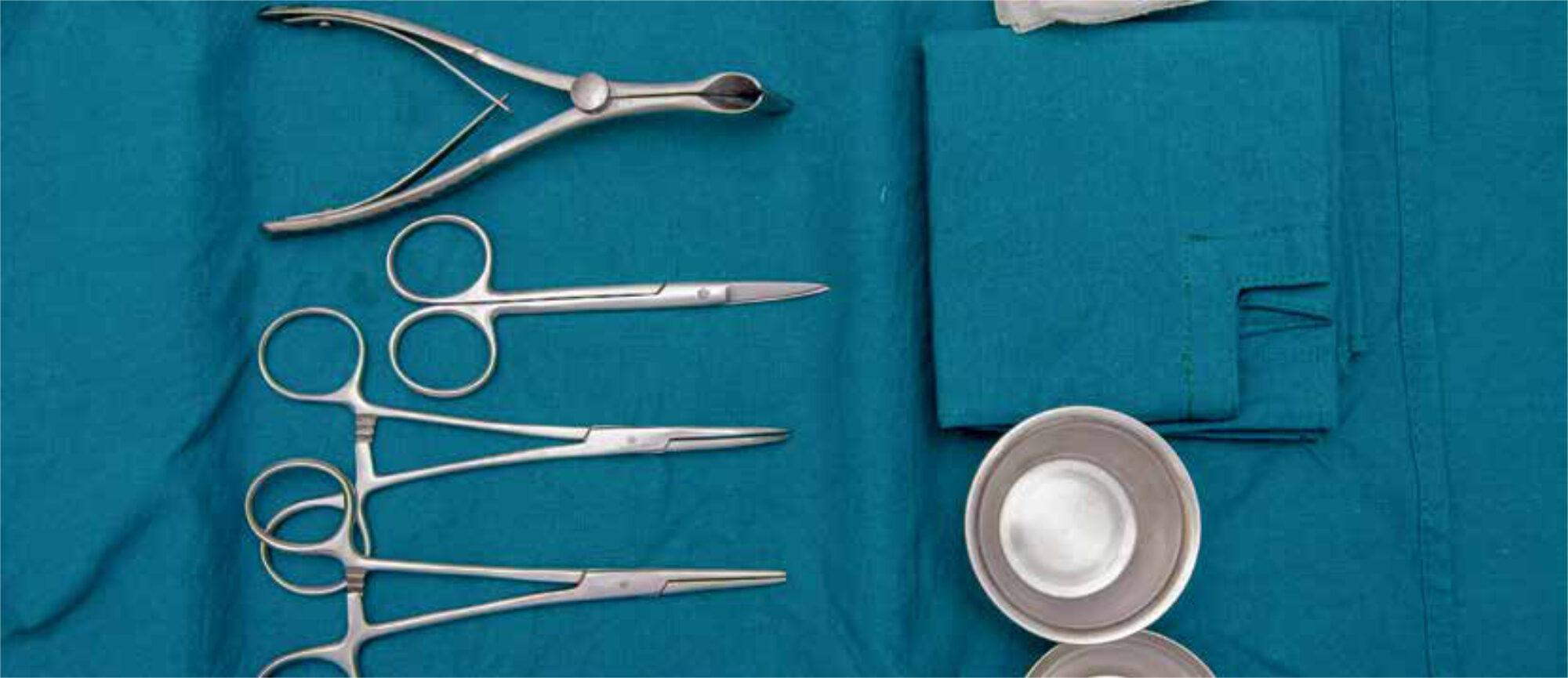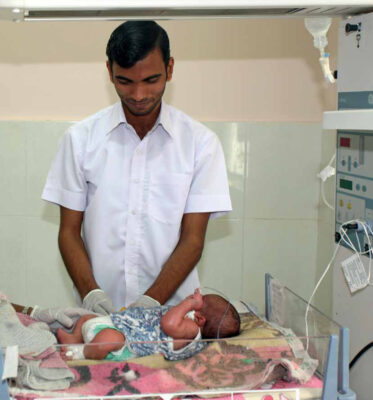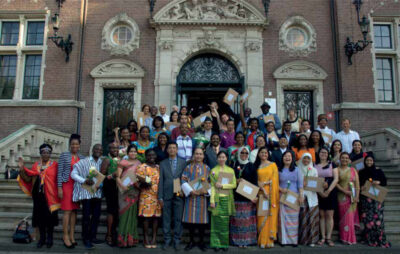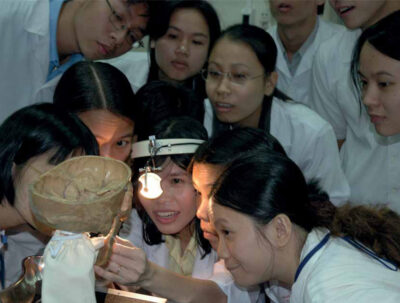Main content
Worldwide, five billion people lack access to safe, affordable surgical and anaesthesia care when needed [1]. Sub-Saharan Africa has the highest ratio of surgical disability adjusted life years (DALYs) lost (a measure of the overall disease burden) and the highest rate of obstetrical complications in the world [2]. It is estimated that the provision of essential surgical procedures would prevent 6-7% of deaths in this region [3]. The most significant barrier impeding the provision of surgical care in Sub-Saharan Africa is the shortage of trained surgical providers. In the COSECSA countries there are 1,690 qualified surgeons for 320 million people, a ratio of about 1:190,000 or 0.53 surgeons per 100,000 [4]. In the long term, only regional organisations can address this deficit.
The College of Surgeons of East, Central and Southern Africa
The College of Surgeons of East, Central and Southern Africa (COSECSA) was established in 1999 to advance education, training, examination standards, research and practice in surgical care by increasing the number of appropriately trained, well qualified surgeons. COSECSA offers a common training programme and standardised examinations across ten countries: Burundi, Ethiopia, Kenya, Malawi, Mozambique, Rwanda, Tanzania, Uganda, Zambia and Zimbabwe.
COSECSA provides independent and internationally recognised training programmes in General surgery and six surgical specialties: Orthopaedics; ENT; Urology; Paediatric Surgery; Neurosurgery and Plastic Surgery. COSECSA training consists of a common two-year membership (MCS) programme followed by a three year (or four in the case of neurosurgery) specialised fellowship (FCS). In-service training is supplemented by mandatory short courses and e-learning.
Partnership with RCSI
The collaboration between COSECSA and the Royal College of Surgeons in Ireland (RCSI) commenced in 2007. The RCSI/COSECSA Collaboration Programme (the Programme) aims to leverage the resources and expertise of RCSI to enable COSECSA to increase the quality and availability of essential surgical care in the East, Central and Southern Africa (ECSA) region. This goal is accomplished through the existing COSECSA activities with the input of RCSI resources and expertise. The objectives leading to this goal are outlined in Table 1.
| RCSI/COSECSA Programme Objectives: |
|---|
| Establish adequate COSECSA administrative capacity to carry out all the functions of an international standard surgical training college and ensure COSECSA’s sustainability. |
| Expand and enhance surgical training programmes for COSECSA MCS and FCS candidates. |
| Expand and enhance basic surgical training programmes for non-surgeons. |
| Enhance and quality assure COSECSA’s examinations processes. |
| Cement COSECSA’s place as the hub of surgical training information and professional development in the ECSA region. |
The programme is supported by Irish Aid (the Government of Ireland’s Development Fund) and RCSI itself in the form of staff time and resources. This includes curricula, education tools, skills training, examination, accreditation, and quality assurance processes.
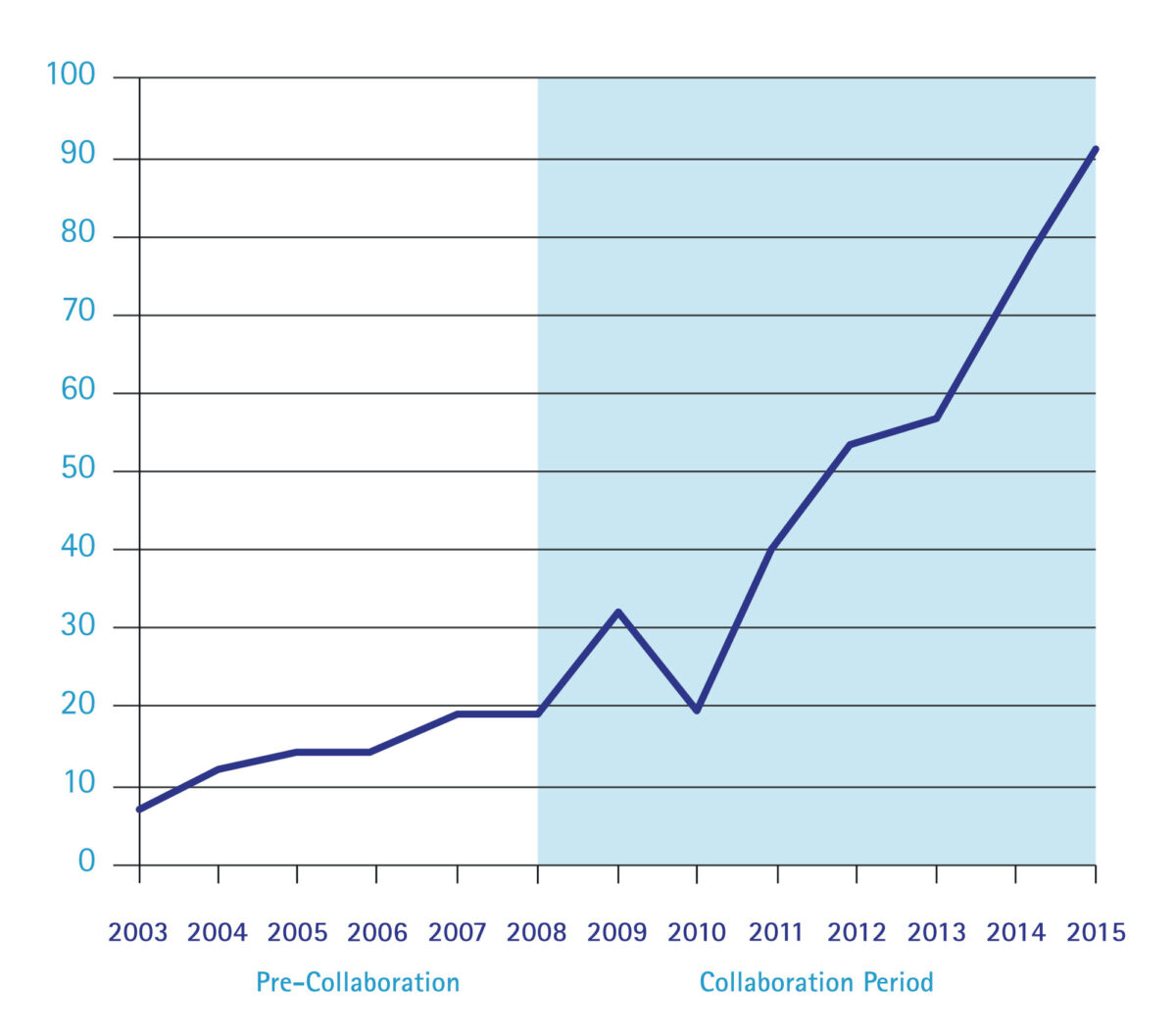
Achievements of the partnership
COSECSA, with the support of the Programme, has now become the largest surgical training institution in the region in which it operates. Since the first fellowship exams in 2004, 158 FCS specialist surgeons have graduated. Each graduate performs on average approximately 300 operations per year, giving a total of 47,400 operations performed regionally each year by these graduates.
As of November 2016, COSECSA has over 400 surgical trainees in 48 training hospitals (see Figure 1). This number now approximately equals the combined number of those enrolled in postgraduate surgical training programmes in all 24 universities in the region that offer such qualifications. In fact, COSECSA now has significantly more surgical trainees than RCSI, although with a fraction of the resources and staffing.
Most importantly, RCSI and COSECSA have worked in partnership to put in place many of the elements needed for long term sustainable functional independence. This includes:
- Train the Trainer courses delivered to all COSECSA trainers: 212 surgeons trained in 17 courses in 10 countries; 28 master trainers trained. This part of the training programme was awarded the Irish Institute of Training and Development’s Corporate Social Responsibility Award 2016.
- Basic Science Faculty development: 27 surgeon basic scientists completed a three-year training programme.
- Establishment of an in-depth database with a profile of every surgeon in East, Central and Southern Africa.
- Development of an online interactive map – in the International Collaboration for Essential Surgery (ICES) – which assists all stakeholders in surgery in the COSECSA region by showing the precise location of every surgeon in the ten countries of the COSECSA region and much more. (www.cosecsa.org/global-surgery-map)
- Mobile optimized logbook which allows all COSECSA trainees to record their operative experience. Vital for assessment and quality assurance, this is the largest repository of surgical trainee operative data in Sub-Saharan Africa.
- Establishment of Africa’s only surgical training e-learning platform and development of a WHO e-learning tool for basic surgical training for non-surgeons.
- Support for the development of Women in Surgery Africa (WiSA), a peer support group that promotes, facilitates and enables women surgeons to take up leadership roles and positions in the COSECSA region.
- Provision of one of a kind mobile surgical skills training unit with surgical simulation technology, used to provide training in Tanzania and Kenya.
- Over 100 general medical officers trained in essential surgical training techniques in rural Zimbabwe, Zambia and Rwanda.
- Ongoing monitoring of retention rates of surgical graduates across the COSECSA region.
Success factors
The success of the RCSI/COSECSA Programme is determined primarily by the fact that it is driven by COSECSA. It works within existing structures and with regional qualifications, as this is the most effective way to improve and expand surgical training.
The programme is institutional, not personal. It is not led by any one individual. Dedicated staff in both RCSI and COSECSA are fundamental to implementation of programme objectives. Ensuring a strong working relationship between RCSI programme staff in Dublin and the COSECSA Secretariat staff in Arusha, Tanzania, is key to the partnership.
Joint oversight is also critical. The Programme is overseen by a Steering Committee made up of Irish-based and African-based committee members. It also draws on the diverse expertise of RCSI departments including Surgery, Examinations, Anatomy, Pathology, Physiology, Information Technology, Communications, Media Services and the Institute of Leadership. The Programme reports twice annually to Irish Aid and three times annually to the Steering Committee. In addition, independent external evaluations were commissioned in 2010, 2013 and 2016.
RCSI and COSECSA emphasise the importance of administrative collaboration and training, as well as the establishment of an information management system. This helps consolidate the institutional knowledge developed over the lifespan of the partnership and beyond.
Income generation is fundamental to the work of COSECSA and to ensuring its long-term sustainability. RCSI and COSECSA work together to mobilise resources and continue the growth of COSECSA. This includes engagement with national ministries of health to secure permanent funding. In 2016, the Government of Ethiopia pledged an annual budget line to COSECSA. RCSI and COSECSA are also engaged with a wide range of other international donors and partners with a view to programmatic development.
Challenges
Challenges which have impeded the pace of progress of the Programme include 1) weak healthcare infrastructure in COSECSA constituent countries; 2) limited availability of equipment and of personnel to attend trainings; and 3) weak communication systems.
Conclusion
RCSI and COSECSA consider that only regional institutions can deliver a truly sustainable surgical training. Increased investment by government and international donors in local surgical training initiatives is critical to empowering local institutions and addressing the surgical workforce shortage. Partnership between peer institutions can help consolidate such investment through shared learning and quality assurance of the training and the examination processes. RCSI and COSECSA have demonstrated that a long-term reciprocal partnership creates a solid foundation for the development of high quality training in, and provision of, surgical care in Sub-Saharan Africa. The success of this model underlines the value of long-term partnerships between North-South institutions and may be used to inform the development of other much needed cadres of health workers in this region.
References
- Alkire, Blake C, Raykar NP et al. Global access to surgical care: a modelling study. The Lancet Global Health, Volume 3, Issue 6, 316 – 323 p 316.
- The Lancet Commission on Global Surgery (2015) Global surgery 2030: evidence and solutions for achieving health, welfare and economic development, p 8.
- Essential surgery: key messages from Disease Control Priorities, 3rd edition Mock, Charles N et al. The Lancet, Volume 385, Issue 9983, 2209 – 2219 p 2209.
- O’Flynn E, Andrew J, Hutch A, et al. The specialist surgeon workforce in East, Central and Southern Africa: a situation analysis, World Journal of Surgery Online, 2016 Jun 9.
















































